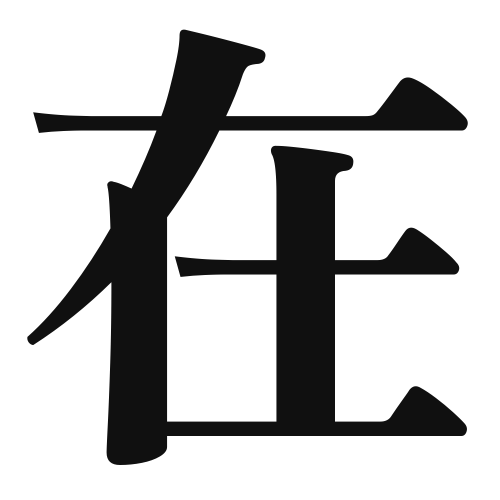1. Overview of Meaning
The kanji “在” (zai) primarily means “to exist,” “to be,” or “to be located.” It conveys the idea of presence or existence in a particular place or state.
2. Formation and Radical
Formation of the Kanji: The kanji “在” is a compound character that combines elements to convey its meaning. It is formed from the radical “土” (earth) and the phonetic component “在,” which together suggest the idea of being situated on the ground.
Radical: The radical of “在” is “土,” which relates to earth or ground, emphasizing the concept of being grounded or present in a location.
3. Examples of Usage
Common Words and Phrases: Some frequently used words that include “在” are “存在” (sonzai – existence), “在宅” (zaitaku – at home), and “在庫” (zaiko – inventory).
Example Sentences in Daily Conversation:
- 彼は今、家に在ります。(Kare wa ima, ie ni arimasu.) – He is at home now.
- この問題は存在します。(Kono mondai wa sonzai shimasu.) – This problem exists.
4. Synonyms and Antonyms
Similar Kanji: A similar kanji is “有” (yuu), which also means “to have” or “to possess,” but it emphasizes ownership rather than mere existence.
Antonyms: An antonym of “在” is “不在” (buzai), which means “absence” or “not being present.”
5. Cultural and Historical Background
Relation to Japanese Culture: The concept of “在” is significant in Japanese culture, as it relates to the idea of presence and being in harmony with one’s surroundings.
Proverbs and Idioms: One common expression is “在るがまま” (aru ga mama), which means “as it is,” reflecting acceptance of the current state of affairs.
